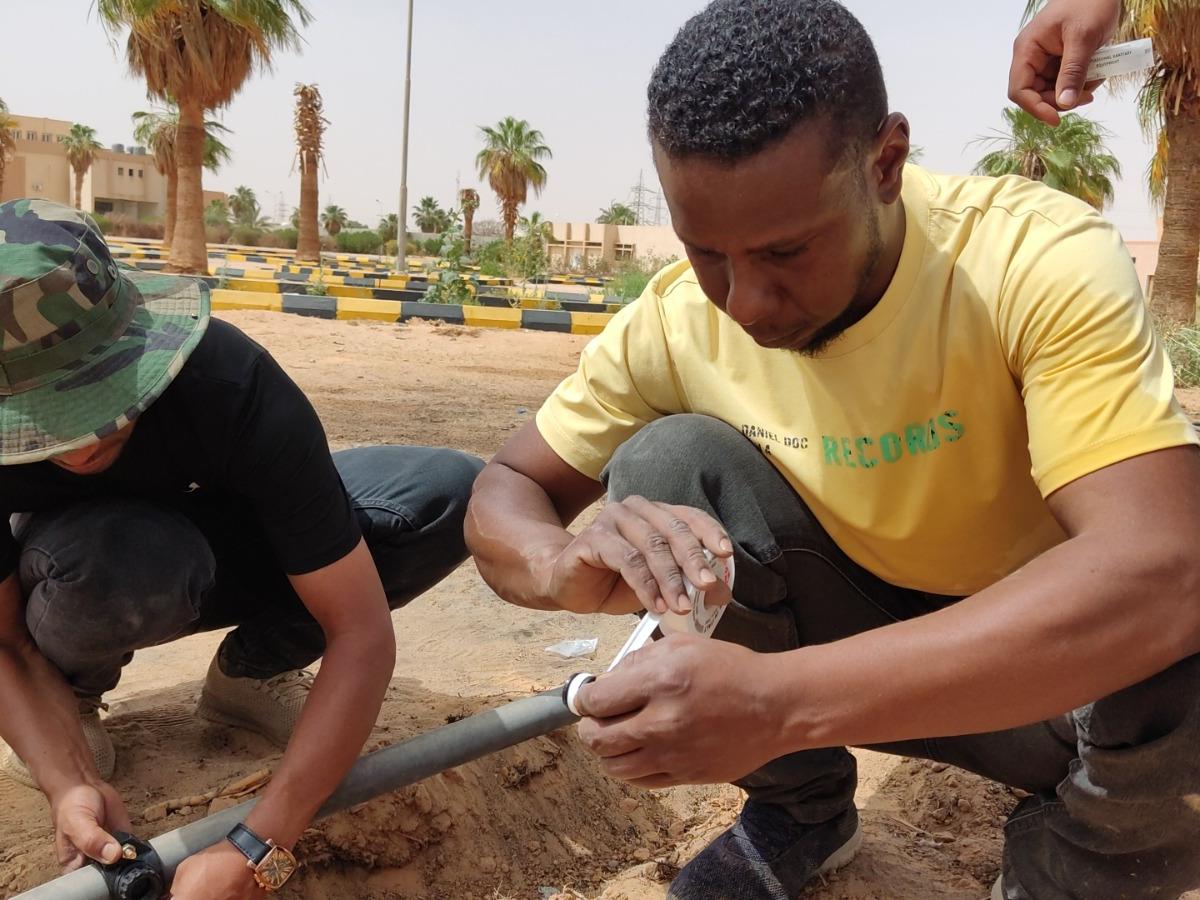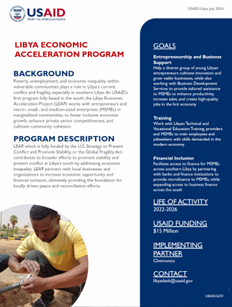2022-2026 • $15 million • Implemented by Chemonics International
BACKGROUND
Poverty, unemployment, and economic inequality within vulnerable communities plays a role in Libya's current conflict and fragility, especially in southern Libya. As USAID’s first program fully based in the south, the Libya Economic Acceleration Project (LEAP) works with entrepreneurs and micro-, small-, and medium-sized enterprises (MSMEs) in marginalized communities, to foster inclusive economic growth, enhance private sector competitiveness, and cultivate community cohesion.
PROGRAM DESCRIPTION
LEAP, which is fully funded by the U.S. Strategy to Prevent Conflict and Promote Stability, or the Global Fragility Act, contributes to broader efforts to promote stability and prevent conflict in Libya's south by addressing economic inequality. LEAP partners with local businesses and organizations to increase economic opportunity and financial inclusion, ultimately providing the foundation for locally driven peace and reconciliation efforts.
GOALS
Entrepreneurship and Business Support
Help a diverse group of young Libyan entrepreneurs cultivate innovation and grow viable businesses, while also working with Business Development Services to provide tailored assistance to MSMEs to enhance productivity, increase sales, and create high-quality jobs in the licit economy
Training
Work with Libyan Technical and Vocational Education Training, providers and MSMEs to train employees and jobseekers with skills demanded in the modern economy
Financial Inclusion
Facilitate access to finance for MSMEs across southern Libya by partnering with banks and finance institutions to provide microfinance to MSMEs, while expanding access to business finance across the south
ACHIEVEMENTS
- Supported the Tamkeen Fund, a partnership between the Central Bank of Libya and the Islamic Development Bank, by linking SMEs in southern Libya to the Fund, increasing access to finance for SMEs
- Partnered with a leading Libyan bank to facilitate the first expansion of microfinancing into southern Libya, unlocking 2 million LYD ($413k) in for MSMEs
- Provided ideation and incubation training to 246 entrepreneurs
- Partnered with two municipalities to launch civic entrepreneurship initiatives to drive private sector solutions to development challenges
- Partnered with 20 SMEs across six target areas to provide firm-specific business development services and technical and vocational training
- Engaged participants from different tribes and ethnicities, more than 60 percent of whom were female


